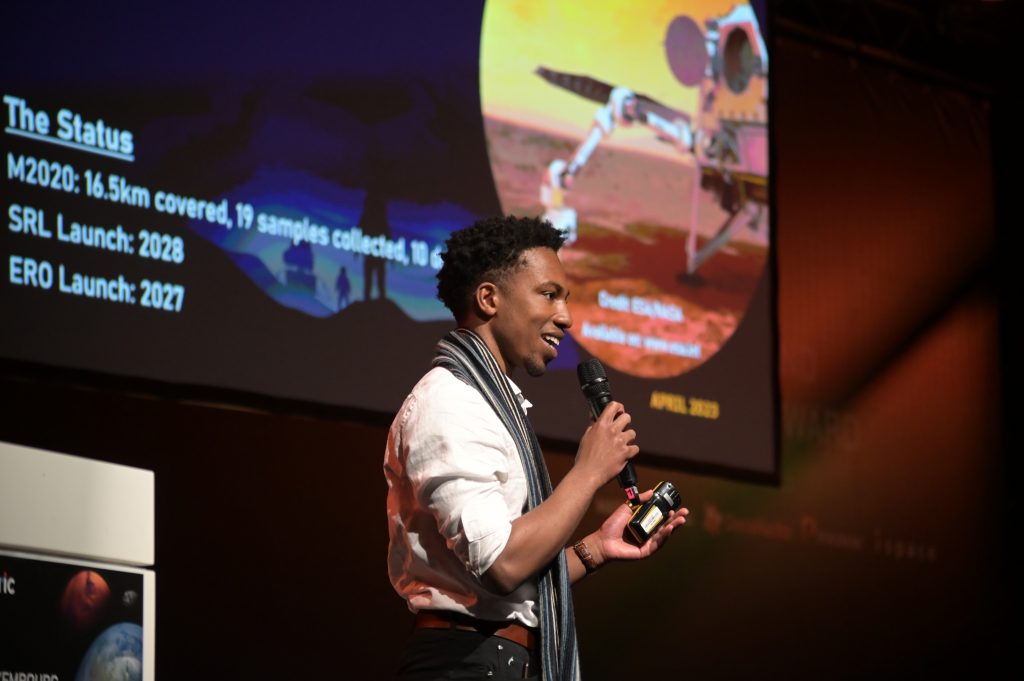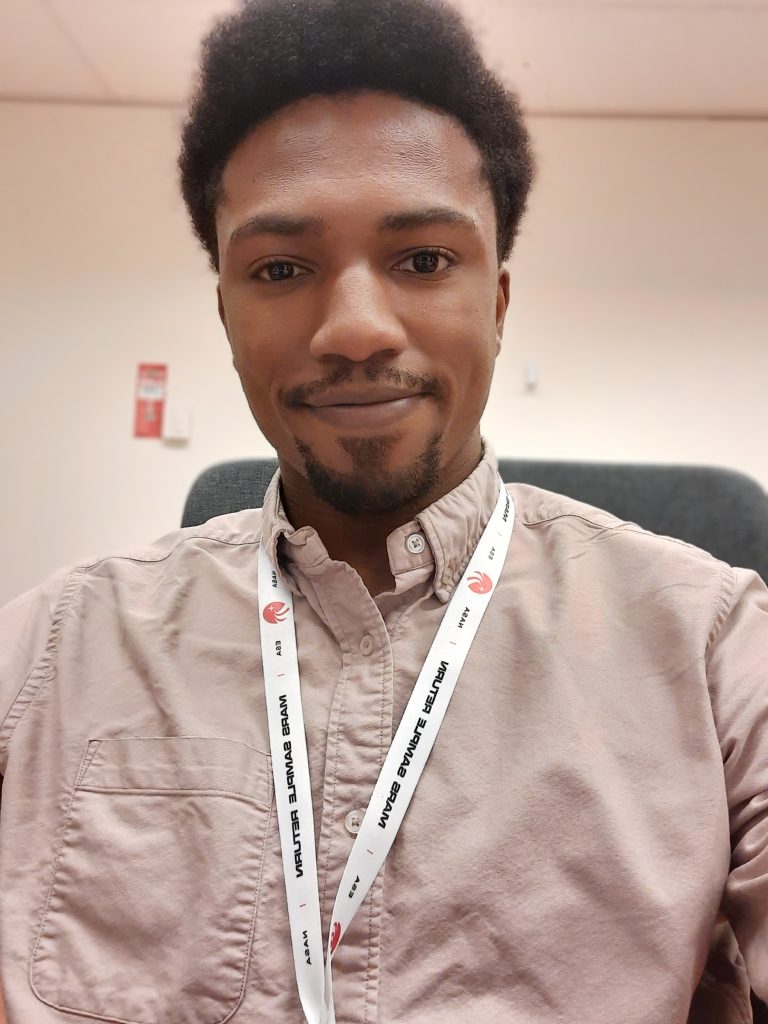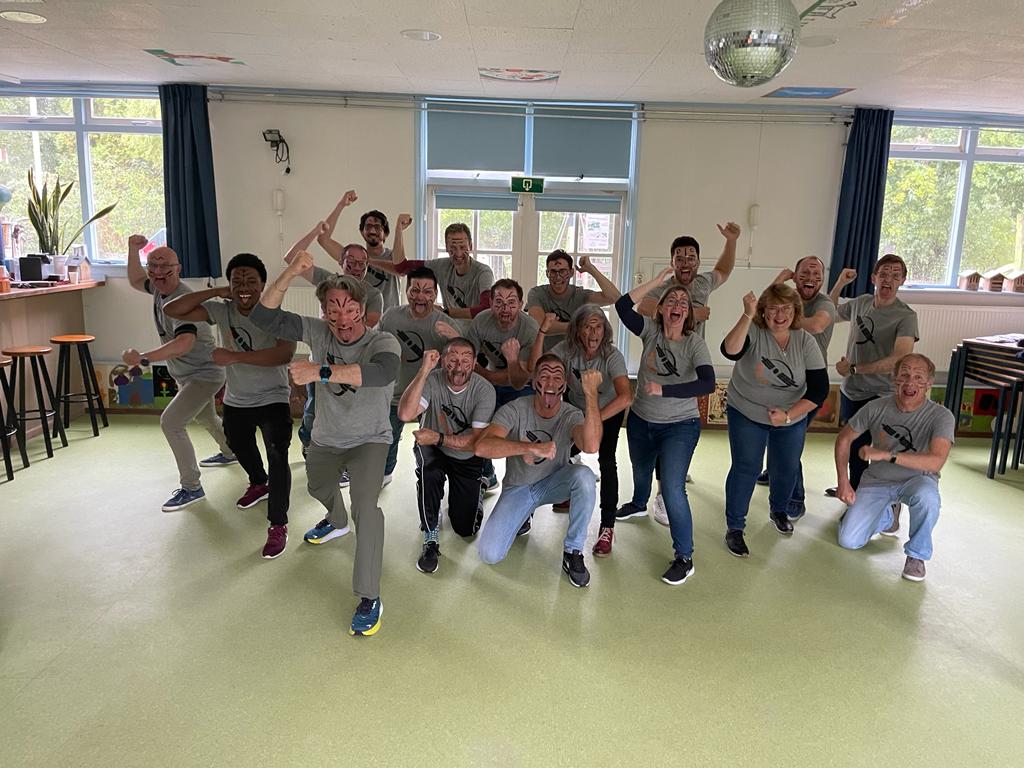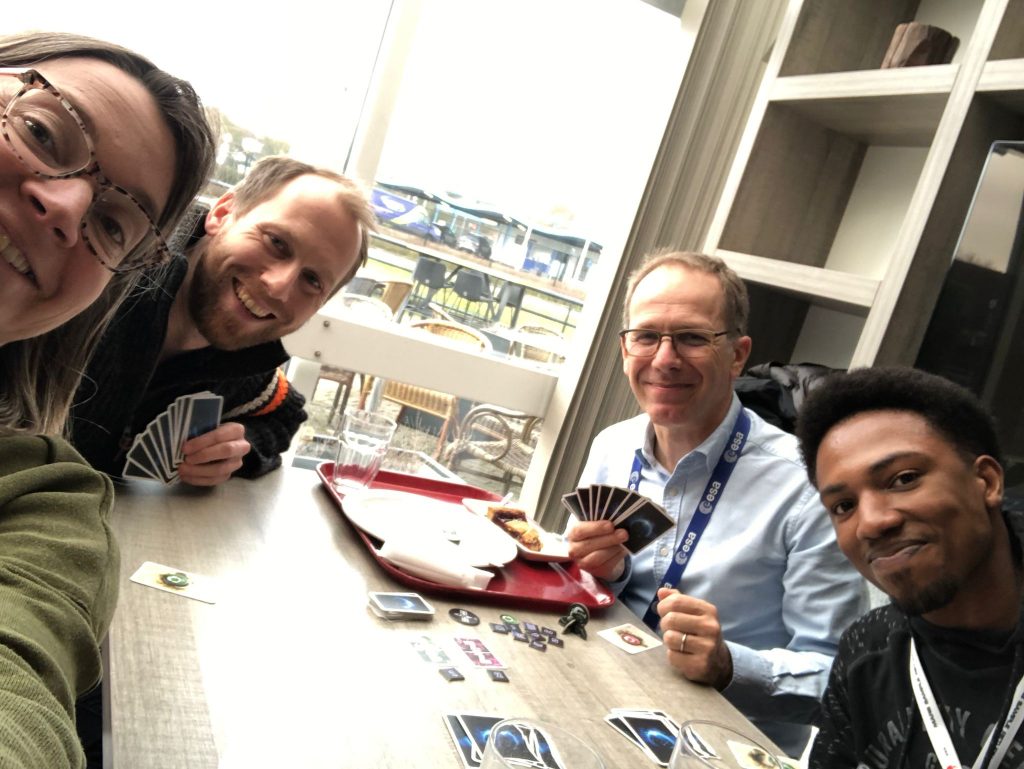By Lanré Logan, graduate trainee at ESA.
I studied physics and astrophysics as an undergraduate, then a masters in space systems engineering in the UK.
My dream was to help in the design of a cutting-edge mission headed to an exciting destination in space, so what could be better than Mars Sample Return?
Mars Sample Return aims to bring samples from the Red Planet back to Earth for analysis. The Earth Return Orbiter (ERO) is the satellite that will fly the samples back to Earth in the first ever round-trip to Mars.
Engineering for Mars
I work supporting the systems engineering team for the orbiter. Systems engineering bridges the gap between engineering and project management.
If the Mars Sample Return campaign was a road trip, the project manager would define where we are going and how much we can spend, the engineer might change the tires and check the fuel, while the systems engineer would integrate our satellite navigation system and put together the best playlist for the sound system.

I work with a tool called IBM Rational DOORS to manage the requirements of the mission. Following the road trip analogy, these requirements dictate how we want the trip to be in terms of the music we play, the places we stop or how long we want it to take. However, for a Mars campaign there are hundreds of interconnected needs that must be tracked. When one changes, sometimes dozens must change. I have the important task of helping to keep things running smoothly.
With my role as graduate trainee at ESA comes the freedom to take on a wide range of tasks, so I also work on some mission analysis related questions. The Earth Return Orbiter has the essential role of bringing samples from Mars back to Earth, but before doing that, it must find them in space. The samples will be launched from the surface of Mars on the first ever rocket launch from a planet other than Earth, and then the samples will enter Mars orbit.

The rocket will send a radio signal that ERO will intercept from Mars orbit to figure out where the samples are. Tracing the orbit of the sample container using only radio signals, timing and doppler shift information is a complex geometrical problem. Nonetheless, it is a very fun one to figure out. I love making simulations for a real Mars mission!
Coding was not initially my top interest, but it has been an excellent opportunity to explore this avenue and develop valuable experience at ESA.
Perks of being on the team
On top of the office work I do for the ERO team, I had the excellent opportunity to present the amazing project in a public event. I took the stage at the Luxembourg Space Resources Week last April to present the Mars Sample Return campaign as the one to bring some of the most valuable and sought after samples to date.
The conference focused on the synergies needed to create an inclusive and sustainable space resource utilisation ecosystem. Sharing how ESA and NASA are collaborating to bring these valuable samples from the Red Planet back to Earth for study was an honour. I felt very lucky getting the chance to speak about the topic I love and meeting amazing people in the industry.
This mission symbolises the spirit of scientific unity and our pursuit to understand the unknown, and getting this message out there is very important for me.

The ERO team learning the Haka in Leiden, the Netherlands. Credits: ESA
From learning a Haka during team building exercises to competitive Mars-related card games against Airbus colleagues at lunchtime, I felt welcomed in the team.
I am surrounded by up to 100 other trainees at ESTEC, as well as dozens of interns, research fellows, and young professionals alike. This diversity feels comfortably similar to my days at university.

Mars team building in the canteen. Credits: ESA
On the other hand, this traineeship has been anything but typical. I get to work with and contribute towards a Mars mission with amazing professionals, interfacing with other agencies and growing professionally in ways I couldn’t imagine. I always hoped to work on an amazing mission to somewhere exciting, but I didn’t expect to be part of one so soon in my career.
This experience will shape my professional journey tremendously, and I couldn’t have been luckier.

Discussion: no comments